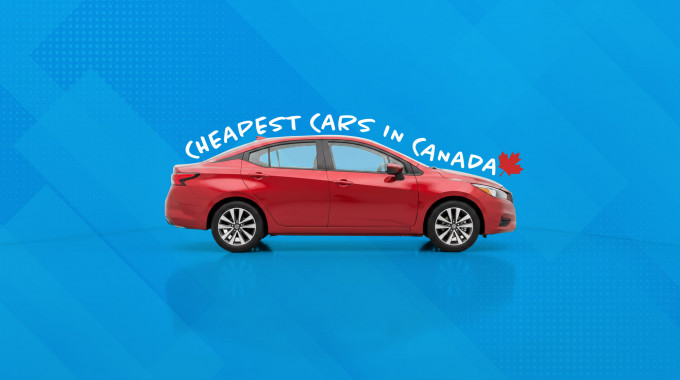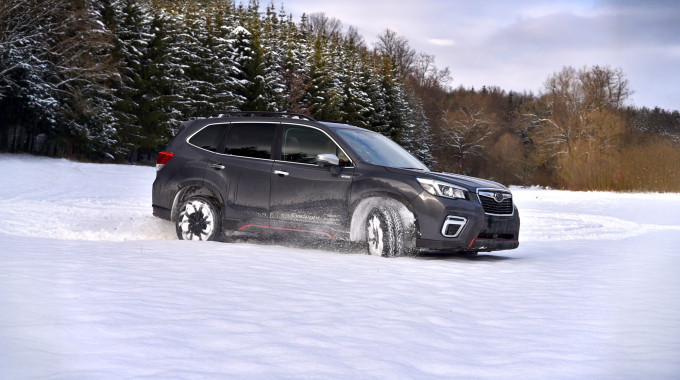
HEV vs PHEV: What’s the Difference, and Which One is Right for You?
The automotive industry has entered an exciting new era, with hybrid vehicles and electric vehicles (EVs) becoming increasingly popular among drivers seeking greener, more efficient alternatives to traditional gas-powered cars. With advancements in electric motors, battery packs, and charging infrastructure, drivers today have more options than ever before to align their driving habits with their environmental and financial goals.
Two standout contenders in this growing space are Hybrid Electric Vehicles (HEVs) and Plug-In Hybrid Electric Vehicles (PHEVs). While both share a common goal of reducing reliance on gasoline engines and improving fuel economy, they operate in distinct ways that could make one a better fit for your specific needs. HEVs rely on a seamless integration of a combustion engine and electric motor, while PHEVs add the ability to charge via an electrical outlet or charging stations, offering an electric-only driving range.
For drivers seeking the most affordable options, hybrid vehicles can be a great starting point. Check out our guide to the cheapest hybrid vehicles in Canada to see how these cost-effective models compare.
Whether you're looking to save money at the gas station, reduce maintenance costs with fewer brake pad replacements, or minimize your carbon footprint with electric power, understanding the nuances of these vehicles is key. In this guide, we’ll dive into the details of how HEVs and PHEVs differ, their advantages and disadvantages, and how they stack up against other types of electric vehicles, like Battery Electric Vehicles (BEVs) and Fuel Cell Electric Vehicles (FCEVs).
We’ll also tackle some common questions, such as, What happens if you don’t plug in a PHEV? and explore why many PHEV owners may not be getting the most out of their vehicles. By the end, you’ll have a clear understanding of whether an HEV or a PHEV is the right choice for you.
From short distances to long-distance drives, and everything in between, this guide will help you navigate the landscape of hybrid electric vehicles with confidence.
Understanding the Basics: HEV vs PHEV
At their core, both HEVs and PHEVs combine electric power with a gasoline engine to reduce emissions and improve fuel efficiency. However, the way they use their electric motor and battery pack sets them apart:
- HEVs (Hybrid Electric Vehicles):
- Powered by a combustion engine and a small electric battery.
- The battery pack is charged by the engine and regenerative braking, so there’s no need to plug it in.
- Seamlessly switches between the gas engine and electric motor, making it a great option for most driving conditions.
- PHEVs (Plug-In Hybrid Electric Vehicles):
- Similar to HEVs but with a larger battery pack that can be charged via a charging port.
- Can run on electric power alone for short distances—perfect for city driving.
- When the battery depletes, the car transitions to its gasoline engine, like an HEV.
How Do They Compare to BEVs and FCEVs?
HEVs and PHEVs are just two types of electrified vehicles under a larger umbrella term that also includes Battery Electric Vehicles (BEVs) and Fuel Cell Electric Vehicles (FCEVs). Here’s how they stack up:
- BEVs: Fully electric, powered by battery packs. No gasoline engine—just electric motors. These vehicles, like Tesla models, require charging at home chargers or public charging stations.
- FCEVs: Use hydrogen fuel cells to produce electricity. These are rare but offer zero emissions and quick refueling times at specialized hydrogen stations.
The main difference? HEVs and PHEVs combine gasoline with electricity, while BEVs and FCEVs are 100% reliant on alternative energy sources.
Pros and Cons of HEVs and PHEVs
When it comes to hybrid vehicles, there’s no one-size-fits-all solution. Hybrid Electric Vehicles (HEVs) and Plug-In Hybrid Electric Vehicles (PHEVs) cater to different driving needs and lifestyles. Both offer the dual benefits of electric power and a combustion engine, but the way they balance these technologies leads to unique strengths and limitations.
Choosing between an HEV and a PHEV often comes down to factors like driving habits, access to charging stations, and willingness to invest in a home charger. While HEVs prioritize simplicity and affordability, PHEVs shine when it comes to reducing emissions and fuel costs—provided you take advantage of their plug-in capability. Understanding the advantages and drawbacks of each type will help you decide which vehicle best aligns with your priorities, whether it’s saving at the pump, reducing your carbon footprint, or enjoying the convenience of a hybrid system.
Here’s what you need to know:
HEVs
Pros:
- No need for a charging port or access to public charging stations.
- Excellent fuel economy compared to traditional cars.
- Lower upfront cost than PHEVs and BEVs.
- Minimal maintenance costs due to reduced brake wear with regenerative braking.
Cons:
- Limited use of electric power due to a smaller battery pack.
- Heavier reliance on the gas engine, which means more gasoline usage compared to a PHEV.
- Not ideal for drivers seeking electric-only operation.
PHEVs
Pros:
- Can operate as a fully electric vehicle for short distances.
- Lower emissions and fuel costs if charged regularly.
- Flexibility to switch to a gasoline engine for longer trips.
Cons:
- Higher upfront cost due to the larger battery and charging system.
- Requires regular access to a charging station or home charger for maximum benefit.
- Potential performance issues if the battery isn’t charged consistently.
What Happens If You Don’t Plug In a PHEV?
A common question among prospective PHEV owners is what happens if you skip plugging it in. The short answer: the car will function like a traditional hybrid (HEV), relying on the combustion engine and regenerative braking to charge the battery.
However, this defeats the purpose of owning a PHEV. You’ll miss out on the benefits of electric-only driving, and over time, the battery may degrade due to lack of regular charging.
HEV vs PHEV Pricing: Is the Extra Cost Worth It?
When comparing HEVs and PHEVs, price is a significant factor. HEVs are generally more affordable because they don’t require a larger battery pack or a charging port. PHEVs, on the other hand, tend to cost more upfront but can save money over time if you maximize electric power for daily driving.
In many regions, government incentives can offset the extra cost of PHEVs, making them a more attractive option for drivers looking to reduce their environmental footprint.
Driving Experience: Long Distances vs Short Trips
Your driving habits play a major role in determining whether an HEV or PHEV is the better fit for you. Each type of vehicle excels in different scenarios, making it essential to match the vehicle's strengths with the kind of driving you do most often.
HEVs: The Long-Distance Champion

If your typical drive involves frequent long distances or highway travel, an HEV (Hybrid Electric Vehicle) is likely the more practical choice. These vehicles seamlessly transition between their gas engine and electric motor, using regenerative braking to keep the battery pack charged as you go. This self-sustaining design means you don’t need to worry about finding charging stations along your route or planning stops to recharge.
Another key advantage of an HEV is the ability to quickly refuel at any gas station—a crucial factor for drivers who prioritize convenience. Whether you're embarking on a road trip or have a long daily commute, an HEV offers the range and reliability needed for stress-free, uninterrupted travel.
PHEVs: Perfect for Short Trips and Urban Living

On the other hand, PHEVs (Plug-In Hybrid Electric Vehicles) shine in short-distance scenarios, especially in city driving. With their electric-only driving range, PHEVs are ideal for running errands, commuting to work, or navigating stop-and-go traffic. These vehicles rely on electric power at low speeds, which not only saves fuel but also reduces emissions in densely populated areas.
However, to maximize the benefits of a PHEV, regular access to a home charger or public charging stations is essential. If you frequently skip charging, you’ll find the larger battery becomes more of a weight than an asset, and the car will function much like a standard HEV. Additionally, drivers who primarily take long trips without the opportunity to charge might not fully capitalize on the advantages of a PHEV.
Matching Your Driving Needs
For most drivers, the choice comes down to a simple question: Are you mostly driving short city trips or extended highway journeys? If you prioritize the convenience of traditional fueling and long-range capability, an HEV is the way to go. But if your lifestyle allows for frequent charging and you value the ability to drive on electric power alone for much of your daily routine, a PHEV can offer significant savings on fuel and a reduced environmental impact.
Ultimately, the decision between an HEV and a PHEV isn’t just about technology—it’s about finding the vehicle that fits your life.
Do HEVs or PHEVs Work Like Teslas?
If you’re wondering how HEVs and PHEVs compare to Tesla vehicles, the answer is simple: they don’t. Tesla only produces battery electric vehicles, which are fully electric and don’t use a gas engine at all. While Tesla cars rely on battery power, they require frequent charging at home chargers or dc fast charging stations for longer trips.
The Verdict: Which One Should You Choose?
Choosing between an HEV and a PHEV comes down to your driving habits, budget, and access to charging infrastructure. If you want something simple, reliable, and cost-effective, an HEV is hard to beat. For drivers with easy access to charging and a desire to reduce fuel use further, a PHEV is a great option that bridges the gap between fully electric vehicles and hybrids.
Either way, both options are steps toward a cleaner, more sustainable future. Whatever you choose, you’ll be contributing to reduced emissions and improved fuel economy—and that’s something to feel good about.
Find a Great Deal on a Hybrid or Plug-In Hybrid Vehicle
If you’re thinking about buying a pre-owned hybrid electric vehicle (HEV) or plug-in hybrid vehicle (PHEV), the pre-owned market can offer some incredible value. Before diving into your search, we recommend starting with a pre-approval. Knowing your budget upfront lets you shop with confidence and focus on finding the right car for your needs. You canGet pre-approved online, with options available for any credit situation. Make your journey to owning a hybrid vehicle as smooth and stress-free as possible!







